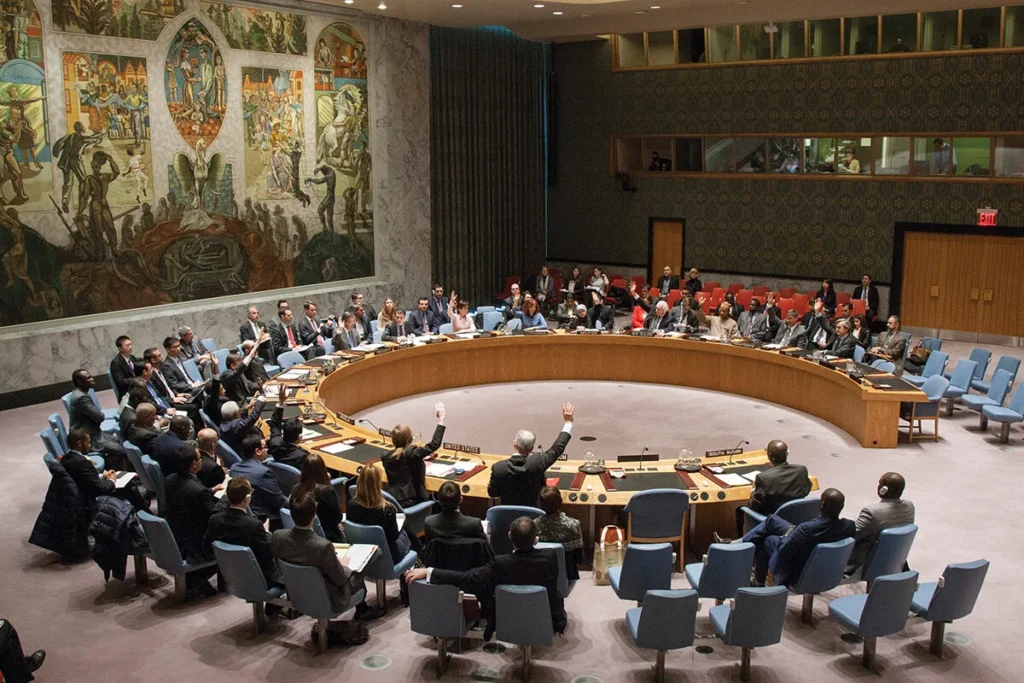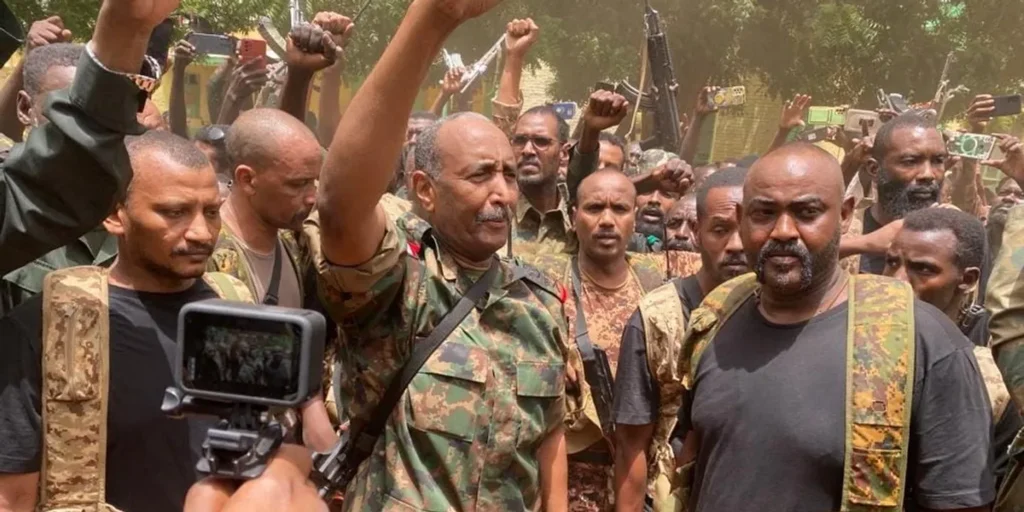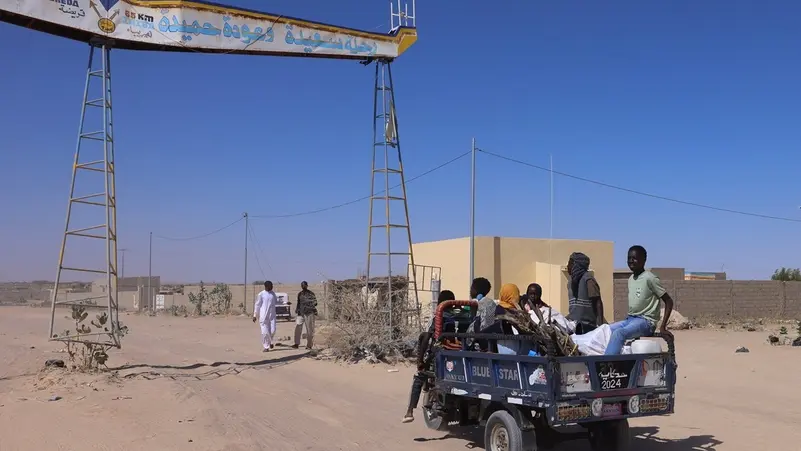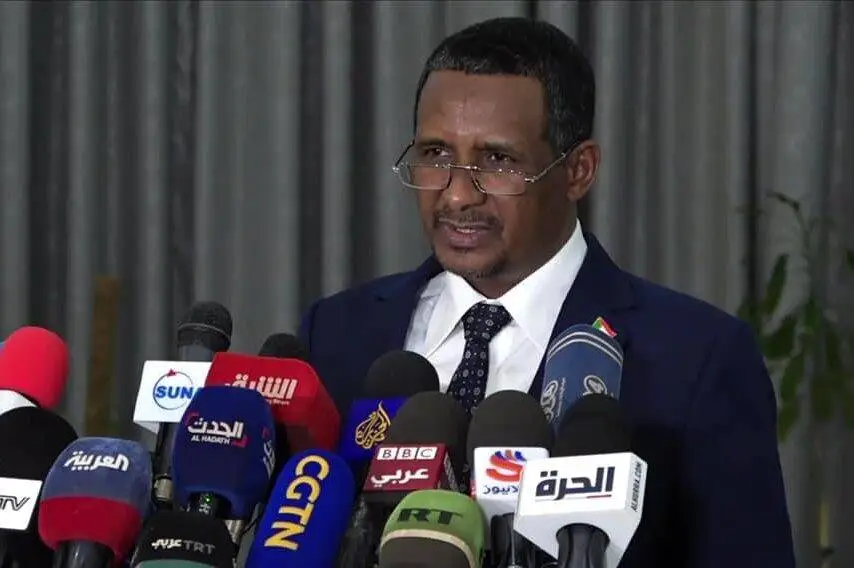
Sudan’s Rapid Support Forces (RSF) on Tuesday unveiled its vision and principles for a comprehensive solution in the conflict-ravaged country.
The main principle is a federal system, which the group says is the most suitable governance model for Sudan, promoting “equality among the nation and its diverse communities.”
The group says the government’s focus on the capital and its surrounding area while neglecting other parts of the country has been an essential reason for conflicts plaguing the country.
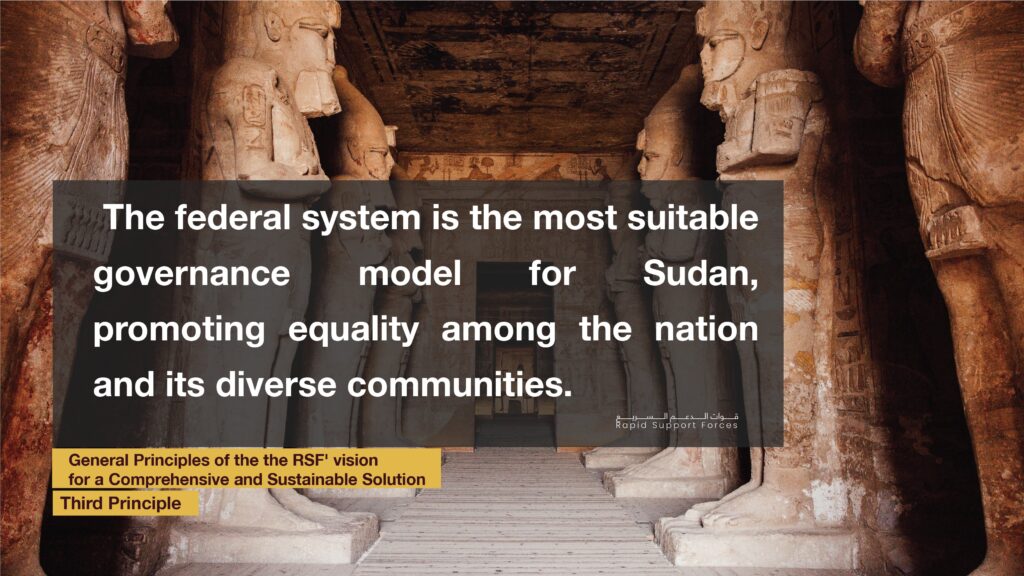
“Ensuring an equitable distribution of wealth among all Sudanese regions is crucial for establishing a stable and inclusive state,” the group’s statement said.
“Preserving and promoting the self-development of each region’s resources will contribute to satisfaction, balance, justice, and prevent acts of violence”.
RSF statement said that since its independence in 1956, certain social groups had wielded absolute power and control in Sudan.
“This has resulted in significant imbalances within the social fabric of Sudanese community. Wars and violent conflicts have erupted in various areas and regions as a consequence.”
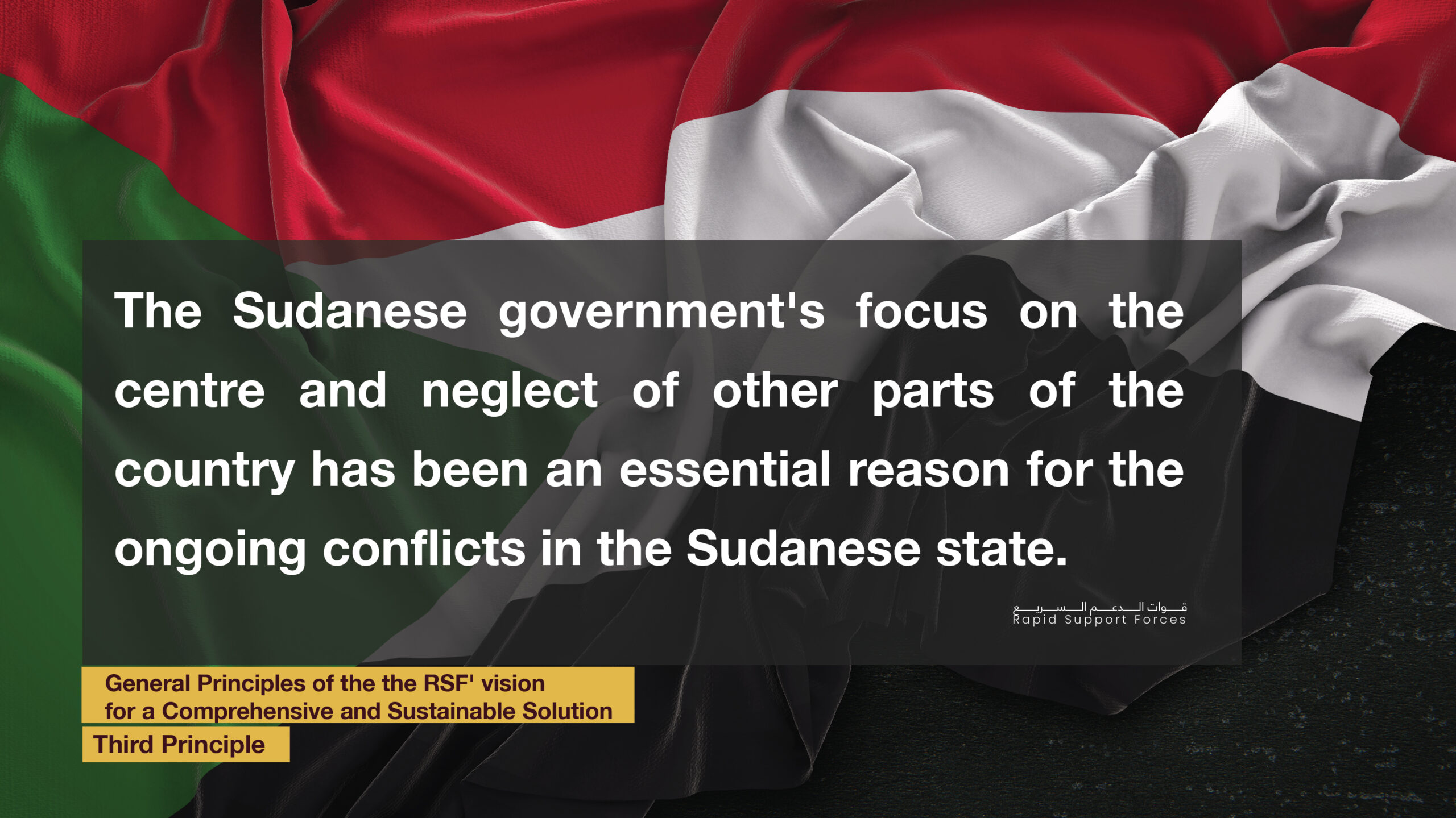
RSF blamed the Sudanese elite for seizing complete power and wealth for themselves and loyalists while ignoring the grim reality in the country.
“This negligence has resulted in wars, the failure of our country’s advancement, and finally the secession of a significant part of our nation,” statement said.
“It has also plunged the remaining regions into a state of bloody conflict, war, poverty, and disease,” statement added.
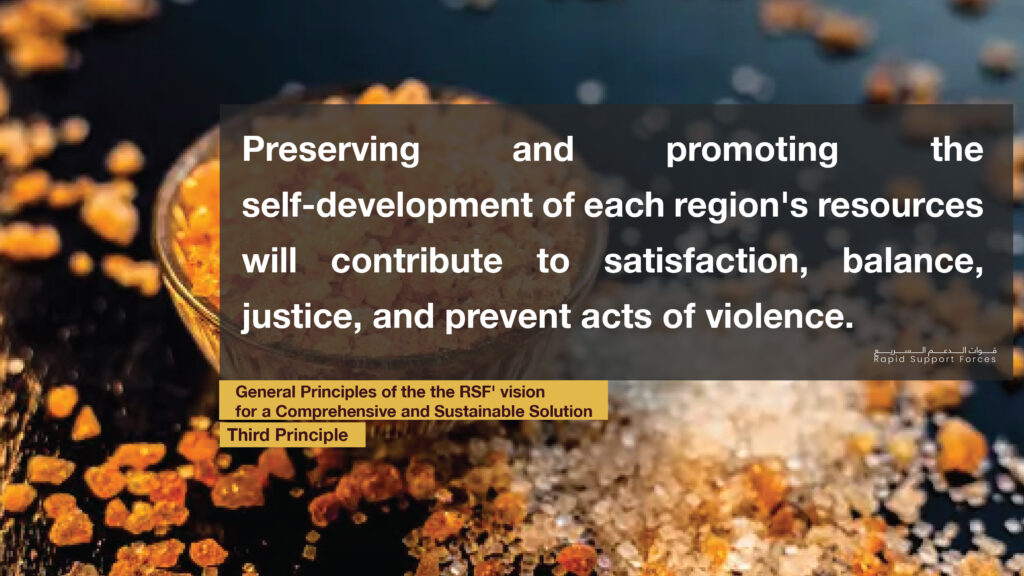
The statement underlined that the crucial demand of the Sudanese population is for the autonomy to utilize their resources and wield authority over their economic, political, social, and cultural affairs.
“The steps towards achieving a state of freedom, peace, and justice necessitates the adoption of a federal system of government,” statement added.
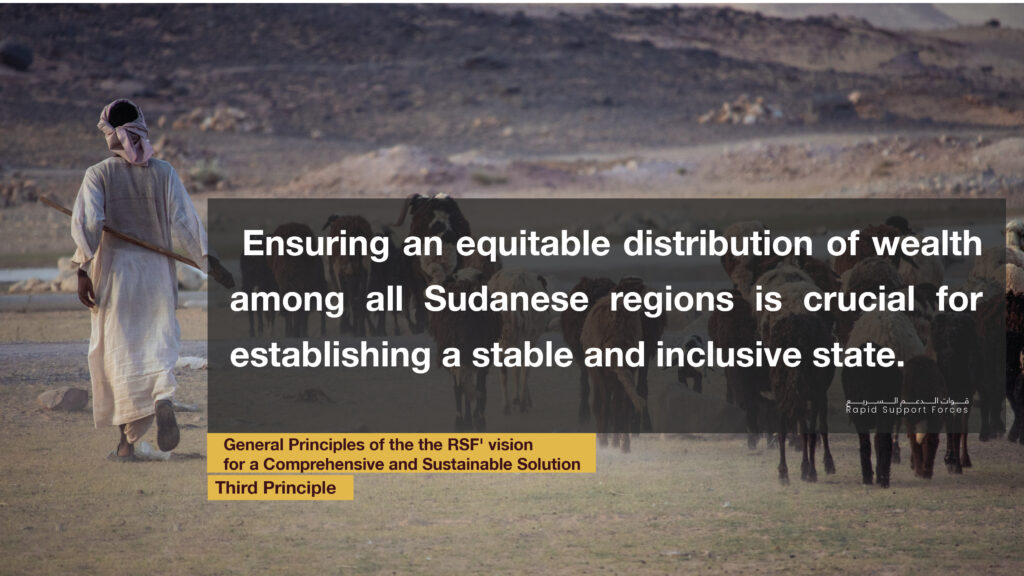
RSF says a federal system would address the needs of ignored and neglected regions and would not struggle to manage Sudan’s diverse resources and populations.
The abuse of state agencies and power has resulted in marginalization, corruption, and favouritism, the statement said.
“The rich diversity of Sudan, which serves as a wealth for our nation, can only be effectively managed through an asymmetric or heterogeneous federal system,” statement added.
The conflict between the Sudanese army and RSF erupted on 15 April. After approximately seven months of fighting, the United Nations estimates that more than 9,000 people have lost their lives, and nearly 6 million individuals have fled their homes.

